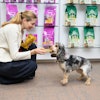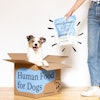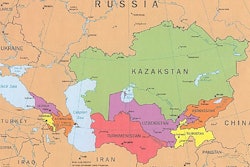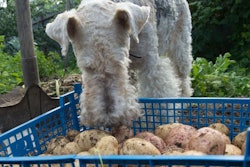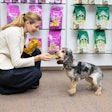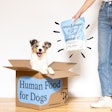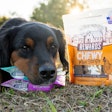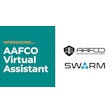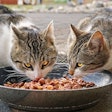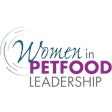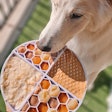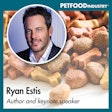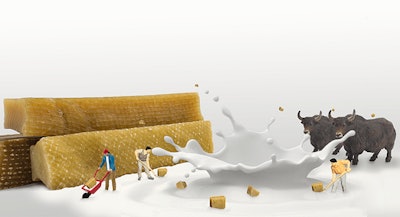
Bhupendra Khanal, the CEO of Khanal Foods, is finding great success as the Bangalore-based manufacturer in the 100% natural dog treats niche. Having established his company in 2015, Khanal has aggressively expanded his market outreach to meet local Indian dog treat demand and tap into the premium Indian pet food exports market.
His brands – Dogsee Bites, Dogsee Chew and Dogsee Crunch – use traditional, Himalayan approaches to manufacture all-natural casual, dental and training treats for dogs, which are currently being exported to 13 markets globally.
Khanal says he owes his success thus far to maintaining their brands’ focus. “This is how we tackle the market,” he explains. “We continue to focus on dog treats, 100% natural, since that is our specialty. Regarding dog food, we do not have any immediate plans. It is not a priority right now.”
Launching, learning in specific pet treat markets
Today, Dogsee brands are found in 3,500 stores across India, with the biggest market demand coming from Bangalore, New Delhi and Mumbai, respectively.
The brand is also succeeding in the export market of India. Part of the reason for focusing only on high-quality dog treats for Khanal was to enter the export markets effectively. “The way we started our business, we straight away picked the largest markets and began approaching them,” Khanal reveals. “Our focus was always in the four to five largest countries.”
That strategy is paying off for many Indian pet food exporters already, reaching an export valuation of U.S.$38.2 million in 2018, at a 489% growth rate over a 10-year period. The majority of those exports, 84%, end up in five countries, all major developed economies: Germany (43%), U.S. (19%), Netherlands (9%), United Kingdom (7%) and Belgium (6%).
For Khanal, launching and maintaining his niche position in such countries is about ensuring the long-term sustainability of his brands. “Last year, we grew by 100%; the year before, by 150%, in terms of revenue and volume,” he tells. “We want to learn in these countries before going everywhere, so we are slow in our exports.”
Sourcing from Himalayan villages
Dogsee Bites are now available in India and Korea, and Dogsee Crunch has been launched in India and the U.S., and will be available in the Chinese, Japanese and Korean markets soon.
Launching the products has been a slow process, because it is also a matter of capacity for Khanal. He explains that at the moment the value chain of supply for his Chew brand is split between small collection and processing units set up within villages, from where it is shipped to their Bangalore factory for cutting and packaging. “We source our Chew from 125 Himalayan villages, indirectly giving employment to 8,000 villagers, and we make about 15 tons per month of Chew,” he adds.
With a team of 31 direct employees, he is currently actively involved in fundraising to build capacity, and cannot comment further. He does, however, say, “We are a very aggressive organization. We have big goals. We do not have one particular investment number, but if we just look at the market … it could easily be a U.S.$20-$30 billion Indian export market, then the opportunity is huge. We have a niche market with natural treats, but it is also the fastest-growing segment of pet food as well.”
In order to achieve those goals, Khanal wants to remain on top of building his marketing team and work toward brand development. “Our messaging has been this: our core brand philosophy is addressing the needs of pet parents,” he says. “Those who treat their dogs as kids. This is the major essence of our brand. It is supported by our brand being from the Himalayas, 100% natural, grain-free, gluten-free. We focus on what you would want to feed to your kid.”
